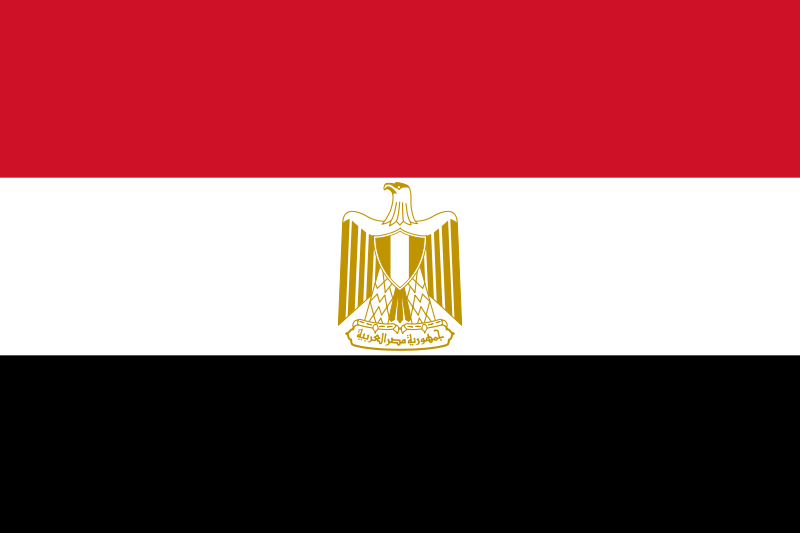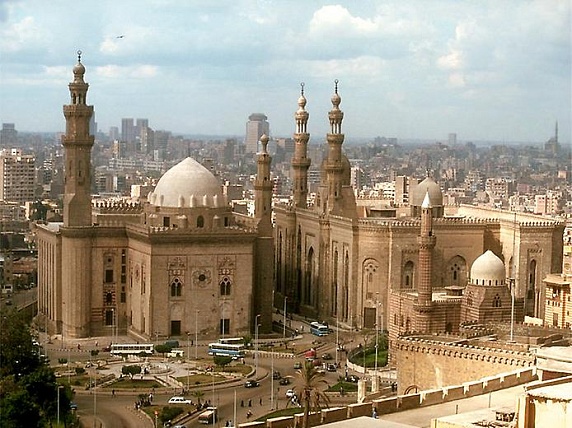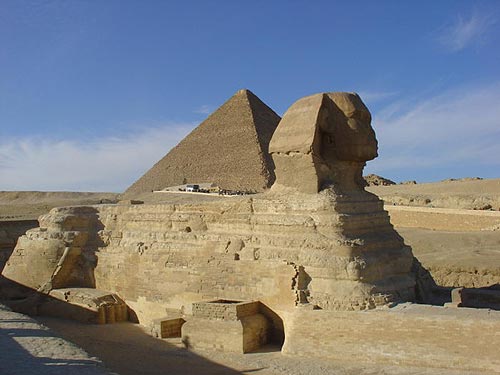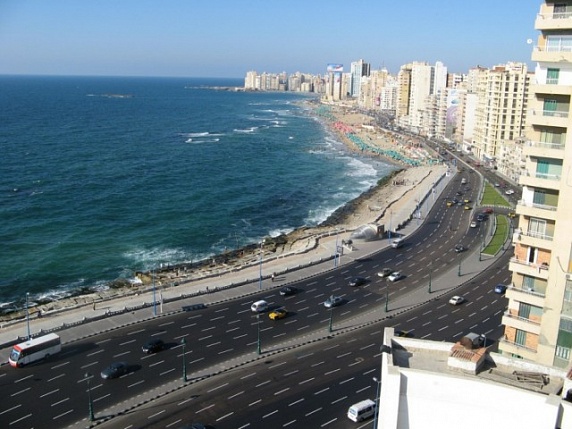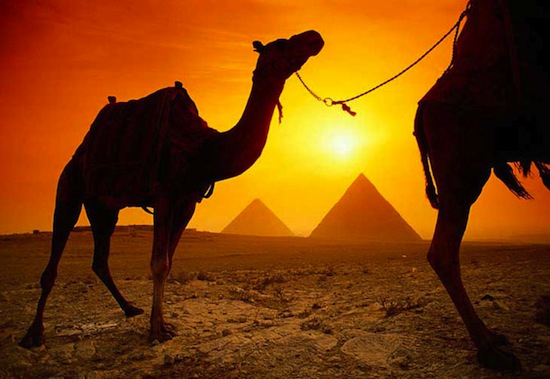 the Arab Republic of Egypt
the Arab Republic of Egypt
Foreign Minister Sergey Lavrov's statement and answers to media questions at a joint news conference with Foreign Minister of the Arab Republic of Egypt Sameh Shoukry, Cairo, April 12, 2021
Ladies and gentlemen,
First of all, I would like to express my appreciation to our Egyptian friends for the hospitality and the excellent organisation of our visit. The talks with President of the Arab Republic of Egypt Abdel Fattah el-Sisi this morning were quite substantive. I just had a very productive meeting with my colleague and friend, Egyptian Foreign Minister Sameh Shoukry.
We expressed mutual satisfaction with the way our relationship is advancing. It has reached a whole new level. The Comprehensive Partnership and Strategic Cooperation Agreement between Russia and Egypt, which was signed during President el-Sisi’s visit to the Russian Federation in 2018, entered into force on January 10.
We thoroughly reviewed the state of bilateral relations across all policy areas, noting that despite the constraints imposed by the coronavirus, we remain focused on adhering to the agreements that were reached between our departments and ministries regarding contacts that are intended to implement practical projects in a variety of areas.
We believe the Joint Commission on Trade, Economic, Scientific and Technical Cooperation will play an important role here. It will meet for the 13th time in Russia this year.
We reviewed progress in the implementation of major joint projects, primarily, the construction of a nuclear power plant and the creation of a Russian industrial zone in Egypt, as part of preparations for the commission’s meeting. We noted the importance of the plans that are already being implemented in transport infrastructure, including our companies’ participation in upgrading sections of Egypt’s railway.
Another round of talks is planned in order to discuss an agreement between the Eurasian Economic Union and Egypt on creating a free trade zone. Clearly, we have made some progress there. Russia is a strong proponent of doing more in this area.
We have good plans for cultural and educational exchanges. The Russia-Egypt Cultural Cooperation Year will be announced in May. We agreed to continue cooperation under the 2+2 mechanism, which brings together our countries’ foreign ministers and defence ministers.
We discussed matters related to promoting people-to-people contacts. We hope that the pandemic-related restrictions will not complicate the resumption of these contacts. We covered the importance of coordinating foreign policy activities which is important for strategic interaction between us. We have overlapping or very close positions on most regional and global issues. We stand for settling all conflicts, including in the Middle East and North Africa, exclusively by peaceful means and on the basis of international law. We agreed to continue dialogue on these matters at the UN and other international platforms.
We covered in detail the state of affairs in the Palestinian-Israeli settlement process and welcomed the normalisation of relations between a number of Arab countries and Israel. We believe it is important to keep the highly important Palestinian problem from being consigned to oblivion. In this regard, we discussed resuming the work of the Quartet of international mediators. Our Egyptian friends supported Russia’s position, which we have maintained for many years now. I’m talking about the need to bring representatives of the Arab world into the Quartet, which, as you are aware, includes Russia, the United States, the EU and the UN. Once we get that done, we can proceed to creating the necessary conditions for resuming direct talks. Our focus is on advancing the principles enshrined in the Arab Peace Initiative spearheaded by the Kingdom of Saudi Arabia some time ago.
Regarding other conflicts, we discussed Libya in detail. We noted with satisfaction that the political and military situation in that country has somewhat stabilised, setting the stage for the country’s reunification. We support implementation of all the decisions on how to organise the transition process, as well as the preparations for a referendum on the Constitution and elections of new government bodies, that were approved by Libyans themselves in Geneva and later in Libya. Like Egypt, we believe it is important to follow through on everything that was agreed on at the meetings of the military committee, the so-called 5+5 Committee.
As for the situation in Syria, we are in complete agreement that it is necessary to stringently and fully implement UN Security Council Resolution 2254, preserve the political unity, territorial integrity and sovereignty of the Syrian Arab Republic and respect the rights of its citizens to decide their country’s future on their own.
We shared our appraisals of efforts in the Astana format and talked about our current efforts to make the Constitutional Committee in Geneva more effective. We believe that at the current stage it is particularly important that we help the Syrians deal with the aftermath of the armed conflict that had lasted for many years and help prevent the reconstruction of basic humanitarian and economic infrastructure from being hampered by illegitimate unilateral sanctions designed to put the Syrian people in a literal stranglehold in the hope that this might lead to so-called regime change.
We spoke in support of creating conditions for refugees to return home as soon as possible. Russia believes the attempts to fund refugee camps created on the territory of countries that are Syria’s neighbours, instead of allocating funds for creating conditions to allow refugees to return home, to be counterproductive and short-sighted.
We share the view that it is necessary to take additional steps towards stabilising the situation in the Persian Gulf area, as well as on the issue of establishing a zone in the Middle East free of mass destruction weapons and the means to deliver them.
We talked about the status of the negotiations between Egypt, Sudan and Ethiopia on the problems arising from the construction of the Renaissance Dam. Russia’s position is well known. We believe that only a decision coordinated by all interested parties that safeguards their legitimate rights and the legitimate rights of their peoples can be effective. We will do our utmost to help create conditions for a settlement like this.
We discussed the development of relations between Russia and the League of Arab States. Currently we are preparing for a regular Russia–League of Arab States partnership forum.
We also talked about the ongoing efforts to implement the resolutions of the first ever Russia–Africa Summit that took place in Sochi in October 2019. Another summit is scheduled for 2022. Today we discussed how to make preparations for this historic event as effective as possible.
I want to emphasise again that we are satisfied with the outcome of the talks. We look forward to continuing to work with our Egyptian colleagues to promote cooperation on the bilateral agenda and in international affairs.
Question (retranslated from Arabic): The Renaissance Dam is a big problem. In 2019, you were part of the technical review team. Does Russia have a vision for how to resolve this issue in order to support the three states and to sign an agreement given that the most recent talks failed?
Sergey Lavrov: This question has long been raised by our Egyptian friends. We are very much interested in reaching a settlement. The only way to do so is to have all three stakeholder states work together. All others must facilitate this process.
At some point, our leaders came with an offer of a technical review including, primarily, images from outer space and water-and-energy expert analysis, to the countries that are parties to this dispute. The offer was passed on. We are not claiming other roles. We were not asked to be mediators. The US, the EU, the UN and the African Union (AU) were invited to act as mediators. I believe this is a crucial matter, because all three participants of the process are represented in the AU. Also, the AU is the right place to showcase the tradition of African countries solving African problems. In this case and all other cases as well, including the ongoing conflicts in Africa, we are strong proponents of the principle of African solutions to African problems.
Question (addressed to Sergey Lavrov): Was the issue of encouraging Syria to return to the Arab League following your visit to the Gulf countries discussed? These calls have remained just that to this day. What actual actions (perhaps, you heard your Arab colleagues say something on this account) need to be taken to advance this issue?
Sergey Lavrov: I can reaffirm our strong conviction that Syria must return to the Arab family and fully reinstate its Arab League membership.
This kind of issue cannot be resolved overnight given the differences and emotions that have accumulated over many years. We sense that our consistent calls to create the necessary conditions for resolving it are meeting with an increasingly engaged and positive response. I can reaffirm that this is precisely the takeaway from our recent visit to Saudi Arabia, the United Arab Emirates and Qatar.
We covered this in detail today as well. I believe it is most important for both parties – the Arab League and Syria – to appreciate the critical advantages of restoring Syria's membership in this pan-Arab organisation. If they recognise these advantages (I heard everyone I talked to say that this is exactly the case), everything else is a matter of diplomatic procedure. Arab diplomacy is known for its effectiveness, so we can count on having this matter settled and, hopefully, fast enough.
Question (retranslated from Arabic): Russia and Egypt are getting closer on a number of regional issues. What are you doing to resolve the conflicts in Libya and Lebanon? What is Russia's position on the initiative to withdraw militants and mercenaries from Libya? Do you support it? What can you suggest doing in this area?
Sergey Lavrov: There is no need to suggest anything. Like Egypt, we support the agreements reached, first, at the Geneva meeting, where officials were elected. Then, Libya’s interim government was approved by the parliament in Tobruk. We are also supportive of the decisions made by the 5+5 Joint Military Committee. I’m sure you know about them, so there is no need to say more about them.
Sergey Lavrov (speaking after Sameh Shoukry): We believe that the problem of Lebanon and the ongoing political crisis can be resolved exclusively by the Lebanese people themselves with the mandatory participation of all political, ethnic and religious groups, as has always been the case in that country’s modern history, without any prescriptions imposed from the outside, even if accompanied by the promise of financial aid.
We continue to work along these lines. We are expecting Prime Minister Saad Hariri in Russia soon. We will also welcome in Moscow officials from that country’s other leading political forces. We will urge them to appreciate their responsibility to their nation and to form a government that will reflect the balance of interests of all groups of Lebanese society.
Question: The media and various experts linked President Zelensky’s recent trip to Turkey to Ankara selling attack drones to Kiev. Is Russia concerned about the possibility of such deals?
Sergey Lavrov: We strongly advise all responsible countries with which we are in contact (Turkey is one of them) to analyse the situation and Kiev’s continuing warlike statements. We warn them against feeding this militaristic sentiment.
It is no secret that already in 2014, the new Kiev government – the putschists – emboldened by the encouragement it received following the anti-constitutional coup, carried out an act of aggression against its own people. When officials from the Zelensky administration say that Kiev is not planning anything in Donbass, because it cannot fight its own people, they are not telling the truth. After the “revolution of dignity,” which, in fact, was an unconstitutional coup, Kiev attacked its people and has since waged a war against them, having declared its own citizens terrorists even though Donbass residents didn’t attack anyone in the rest of Ukraine, but simply asked Kiev to leave them be and let them figure out what was going on after the neo-Nazis grabbed power in Kiev and immediately came out against the rights of Russian-speaking people living in that country.
I hope that everyone, including the countries that are discussing the possibility of supplying military equipment to Ukraine, remember this history.
Question: Is it fair to say that Washington's plans for the passage of warships into the Black Sea are adding fuel to the fire, and US actions in these circumstances are creating additional tensions in eastern Ukraine? Was Russia in contact with the United States? If so, at what level? Have we called on the Americans to act more transparently in this sphere?
Sergey Lavrov: As for US military activities, including sending its ships to the Black Sea, this is a regular occurrence. It is being done especially pointedly now and is accompanied by aggressive rhetoric. Questions are being asked about what Russia is doing on the border with Ukraine. The answer is very simple: we live here, this is our country. But the question of what the United States is doing there with its ships and troops, never ceasing to organise all kinds of NATO activities in Ukraine, thousands of kilometres away from its own territory, remains unanswered.
I think the lessons of 2014 should have been clear by now. Unfortunately, this is not the case. We do not see any confirmation of this truth, which, we hoped, had been internalised by those who encouraged the anti-Russian and Russophobic sentiment of the Ukrainian leaders and the lack of any desire on the part of the previous and current government in Kiev to comply with the international legal agreements enshrined in the UN Security Council resolution that approved the Minsk agreements. This may end badly, because in pursuit of reclaiming its ranking, the Kiev regime may snap and take some reckless actions.





